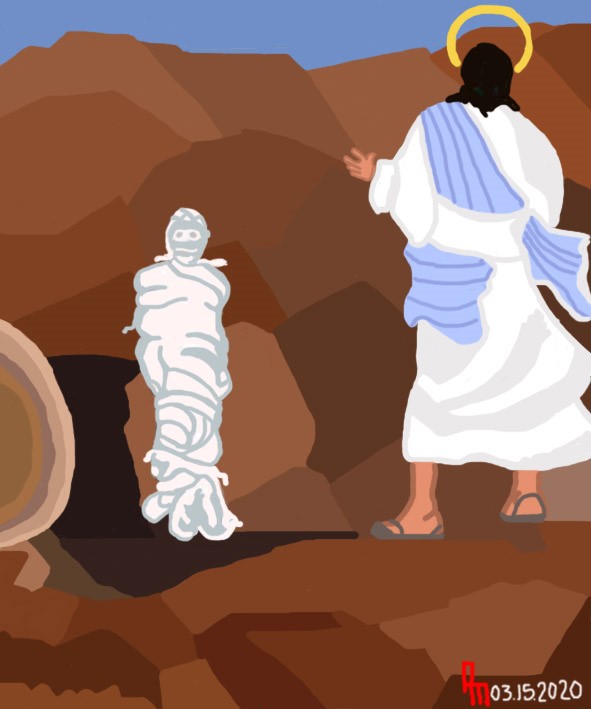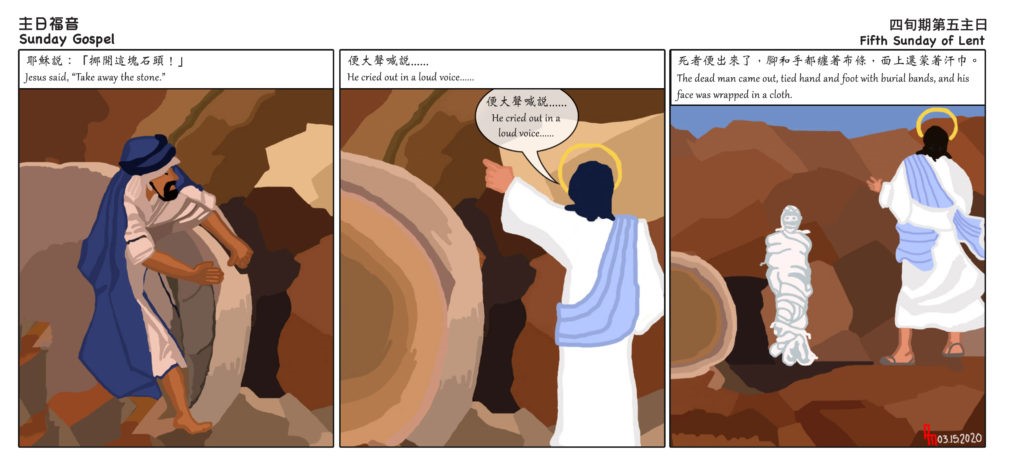JOHN 11:1-45
– Fr. Fernando Aremellini SCJ
Claretian Publications Macau
The resuscitation of Lazarus is to be understood as to go beyond this material world into the world of God, to gain a new life with God.
By allowing Lazarus to die, Jesus responds to this dilemma: it is not his intention to prevent biological death. He has not come to make this form of life eternal but to introduce us to that which has no end. When spirituality is reduced to the pressing demands of miracles, it inevitably results in a crisis of faith and the doubt that “he is not here” where we would expect him to be, when we need him most, in sickness, sorrow, and misfortune.
Martha believes in the resurrection of the dead. She is convinced that, at the end of the world, her brother Lazarus will return to life together with all the righteous and will take part in the kingdom of God.
This is her way of understanding the resurrection (perhaps similar to that of many Christians today) that does not console anyone. Why would God let one die only to bring him back to life?
The Christian does not believe in a death and a resurrection that will take place at the end of the world. He believes that the person redeemed by Christ ‘does not die’ but gains eternal life.
For an example, let us suppose that in the womb of a mother there are twins. They can see, understand, speak to each other during the nine months of gestation. They only know their own little world and cannot imagine what life is like outside. They have no idea that there are animals, plants, flowers, beaches etc.
After nine months, the twins are born by turn. The one who was born a few seconds later and remained for a short time in the womb of the mother, would certainly think: “My brother is dead, he’s not here anymore, he disappeared and left me….” and he cries. But the brother is not dead. He only left a restricted, short, limited life. He went into another form of life.
In the Christian perspective, therefore, life in this world is a gestation and death is attested and verified by one who remains, not by one who dies. The judgment of Lao-Tze is known: “That which for the caterpillar is the end of the world, for the rest of the world is a butterfly.”



 Follow
Follow


